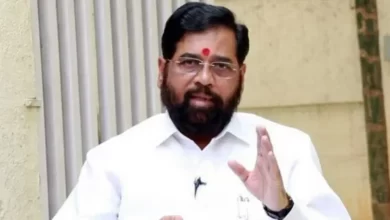Growing crisis due to Pakistan’s Afghan policy

Neither the international community has confidence in Pakistan, nor the Islamic countries.
brahmdeep alune
Neither the international community has confidence in Pakistan, nor the Islamic countries. This was also reflected in the recent conference held in Pakistan. Top leaders of very few countries attended this special conference organized on the initiative of Pakistan.
Pakistan’s role as a balancing nation for peace and stability in Afghanistan has little chance of getting global recognition on a theoretical and practical level. The people of Afghanistan hold Pakistan responsible for political instability, terrorism and Taliban occupation in their country. This protest has been seen from Afghanistan to the global level.
From Afghanistan’s supreme leader Hamid Karzai to Ashraf Ghani, Pakistan has been blaming Pakistan for the plight of his country. Confusion about Pakistan continues in the international community as well as in Islamic countries. The major reason for this has been the multi-faceted interests of Pakistan. The Pakistan-backed Taliban is a Sunni organization and has been targeting minority Hazara, Tajik and Shia Muslims. After the occupation of Afghanistan, he has committed atrocities on these minority communities.
Human rights organization Amnesty International in a report in July this year claimed the genocide of the Shia Hazara community in Afghanistan. According to Amnesty, the Taliban brutally killed thousands of men from the Hazara community in Ghazni province. These people live in remote areas. The Taliban have cordoned off these areas. Lack of communication facilities also makes it difficult for the Hazara community to get help. The Hazaras are Afghanistan’s third largest ethnic group and have been exploited for decades in Sunni-majority Afghanistan and Pakistan. This is the reason that most of the Muslim countries bordering Afghanistan trust India more than Pakistan.
Pakistan recently convened a conference of the Islamic world and some other selected countries in Islamabad to discuss the situation in Afghanistan and provide it with international help. The plan behind this exercise was to restore international aid to the Taliban, which is currently on hold. Pakistan also wants to show that it is concerned for the future of the Afghan people and wants to help restore peace and stability in this unstable country.
But it has been seen that after promoting the return of Taliban to power in Afghanistan as freedom from foreign slavery, now Pakistan is trying to intimidate the international community by indicating the emerging threat from instability in Afghanistan on global forums. Its strategy behind this has been that by getting the Taliban recognized at the global level, its strategic interests can be protected and it can be successful in bringing India under pressure.
Pakistan has become recognized internationally as a country that cannot be trusted, but given the complexities of terrorism, its role cannot be ignored. Especially the geopolitical situation of Pakistan has made it very sensitive. In the midst of all this, Pakistan wants to keep India away from it by controlling the foreign aid to Afghanistan. He wants to put Afghanistan at stake for the economic interests of China.
On the other hand, if India’s influence in Afghanistan does not increase again, Pakistan is also scared of it. Its intention not to invite India to the important meetings convened on Afghanistan has only aggravated the humanitarian crisis. Whereas for the last several decades, India has contributed significantly to the development of Afghanistan. India had done remarkable work on projects in the education, health and infrastructure sectors, which have stalled after the withdrawal of the Taliban.
In the 1980s, the US used Pakistan as a frontline nation to drive out Soviet forces from Afghanistan. In return, Pakistan was given extensive economic and strategic assistance. After the 1988 Geneva Accords, Soviet forces withdrew, but peace could never be established in Afghanistan. The mujahideen that Pakistan had trained against the Soviet army later emerged as the Taliban and they violently destroyed the entire system in Afghanistan. For the past several decades, Taliban leaders have enjoyed political and economic patronage and support from Pakistan.
Pakistan’s policy of helping the Taliban is also considered responsible for America’s failure to eliminate the Taliban even after staying in Afghanistan for two decades. In order to overthrow the democratic government of Afghanistan, incidents of raising funds for the Taliban and honoring their fighters as martyrs have been coming to the fore in various areas of Pakistan. The international community is pressuring the Taliban to restore representation of all sections, including women, in Afghanistan and act with integrity and responsibility to protect human rights.
In global forums, Pakistan is behaving like a spokesman for the Taliban. This policy of his is increasing the problems of the people of Afghanistan. Pakistan is neither trusted by the international community nor all the countries of the Islamic world. This was also reflected in the recent conference held in Pakistan. Top leaders of very few countries attended this special conference organized on the initiative of Pakistan. Many countries completed the formalities by sending their deputy ministers and representatives. On the other hand, at the same time a one-day meeting of India-Central Asia Dialogue was held in New Delhi, which was presided over by External Affairs Minister of India S. Jaishankar did it.
Foreign ministers of Kazakhstan, Kyrgyzstan, Tajikistan, Turkmenistan and Uzbekistan attended the meeting. Last month also, the National Security Advisors of all these Central Asian countries had a similar dialogue in Delhi regarding Afghanistan. All these countries are members of the Organization of Islamic Countries (OIC) and share a border with Afghanistan. These ministers preferred India over attending the OIC meeting in Islamabad and conveyed that they wanted to maintain cooperation with India on the issue of Afghanistan. Countries like Tajikistan, Turkmenistan and Uzbekistan are concerned that there may be a humanitarian and security crisis on the borders of Afghanistan in the coming times. Not only this, the military aid from Pakistan to the Taliban can become a threat to these nations. The major concern of Kazakhstan and Kyrgyzstan is the rise of Islamic extremism.
Keeping in mind the humanitarian crisis of the Afghan people, India has sent food grains and life saving medicines through Pakistan for the first time since the arrival of Taliban. Obviously, India’s initiative on Afghanistan can have positive results. A psychological and strategic pressure rests on Pakistan to strengthen India’s position in Afghanistan. It also helps in controlling and balancing Afghanistan. India needs to be strong there to deal with the instability and terrorism created by Pakistan in Afghanistan.
,






